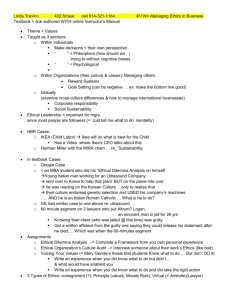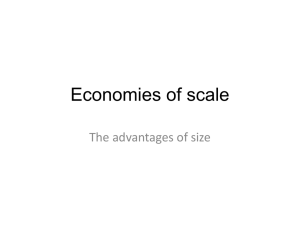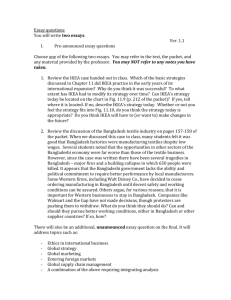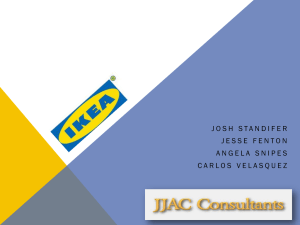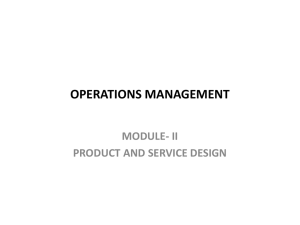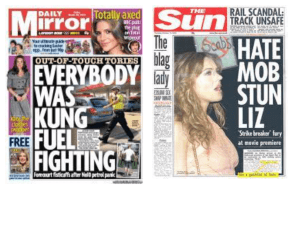Join ventures and strategic alliances
advertisement
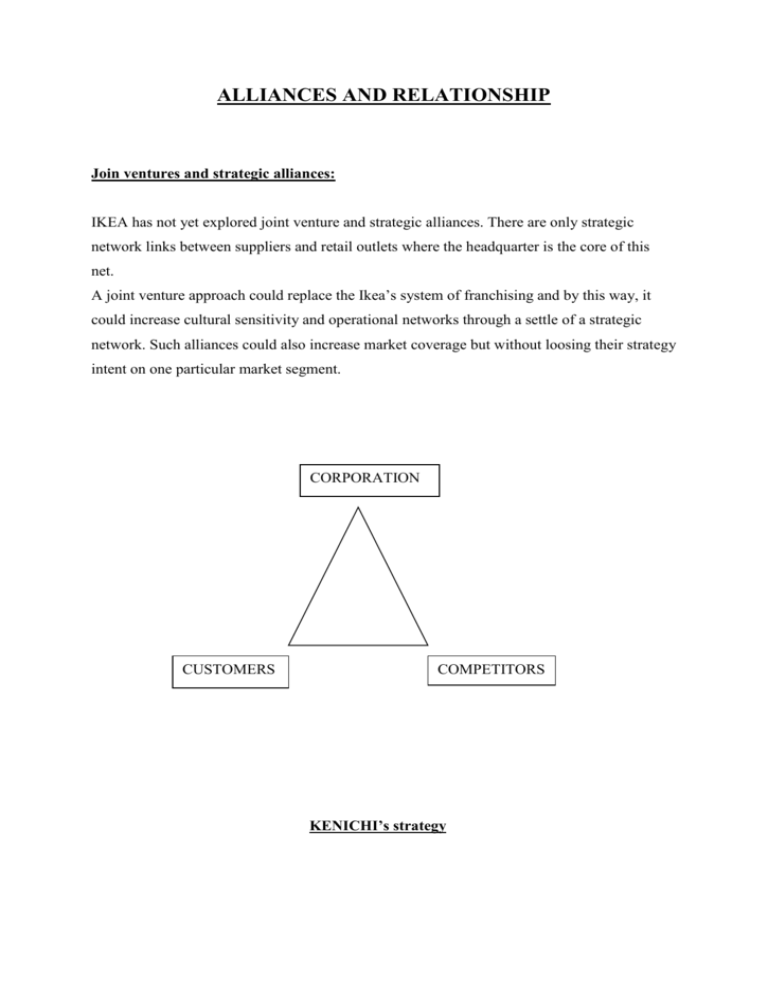
ALLIANCES AND RELATIONSHIP Join ventures and strategic alliances: IKEA has not yet explored joint venture and strategic alliances. There are only strategic network links between suppliers and retail outlets where the headquarter is the core of this net. A joint venture approach could replace the Ikea’s system of franchising and by this way, it could increase cultural sensitivity and operational networks through a settle of a strategic network. Such alliances could also increase market coverage but without loosing their strategy intent on one particular market segment. CORPORATION CUSTOMERS COMPETITORS KENICHI’s strategy By finding an appropriate partner, Ikea can expand into other market segments in which competitors are well integrated. In return, Ikea can provide the partner with the access to reliable suppliers. In particular, Ikea's insensitivity to individual market needs represents another obstacle to increasing market share. It is highly questionable whether the current centralized design and research development department is able to understand global customer needs and satisfy all of them better than the local competition. For instance, Scandinavian customers like furniture in light pastel colors. Americans, on the other hand, prefer darker and more classic designs. Presently, Ikea ignores this issue and pushes its Scandinavian designed furniture into the American market. Opposite to this, local joint venture partners could develop products within their core-competencies for the local market, and thus, more effectively respond to customer needs. Ikea has not any joint ventures but there are so many franchising. Indeed, alliance and joint venture are great risks and could cost a lot. It must be strategic. The alliance must be clear and the other company must be reliable. The alliance is a kind of exchange between the companies of technology, knowledge… About the suppliers: They are committed to having a good relationship with their suppliers, it is for that they purchase good quality, economically produced designs that are bought in bulks to keep costs down. About the transport : The transport is crucial for a company as IKEA. It is an heavily-transport-dependent company. IKEA has 2,300 suppliers around the world for approximately 10,000 products. We all know that the transport carriers are limited in the transport of any products because of the availability of alternative fuels. In order to contribute at a good role in the environmental impact, IKEA decided to choose the rail transport and the combined road-rail transport wherever it is possible. In the long term, they want to influence railway transport and the public opinion about the environmental benefits implicit in these choices. IKEA is working in close co-operation with its suppliers in order to apply these solutions to reduce the environmental impact. The company has developed a program called “IKEA, Transport and The Environment” to make the most efficient transport solution with the suppliers. About the customers: The IKEA concept builds on a relationship with the consumer. Nine key messages are used within the IKEA marketing communication to build this relationship and give an understanding of how we can fulfil our customers needs. The IKEA concept is based on the market positioning statement. "We do our part" focuses on our commitment to product design, consumer value and clever solutions. About the public relation: The primary concern of this function is to protect the IKEA corporate identity but also to communicate our vision, business idea, brand values, concept and trademarks. By informing journalists of news and information within IKEA through press releases, website information, catalogue distribution and product launches, we are able to communicate with a huge audience through their readers. The overall identity of IKEA is based in Småland, historical and thrift are strong characteristics of the region and its people. All IKEA policies live up to this standard from the products we sell to our internal travel and recruitment procedures. All areas of the IKEA marketing department work together to give consistent messages to our customers and strengthen our brand identity. By focusing on communicating the key messages of the IKEA concept, our vision, and business idea we can work together to create our vision of a better everyday life for the many people." About the sponsorship: Ikea invested between $25.000 and $50.000 in the Tree Canada Foundation. This is a foundation based in Canada and which plants or replants tree over Canada but more precisely in urban region. Indeed, one of the raw materials of Ikea is the wood coming from trees from the whole world. In order not to be broken off of wood, it enables Ikea to have a good reputation and to keep the reserves high. In April 2004, Ikea made a sponsorship with the Unicef program in the war torn countries of Angola and Uganda as part of the Children’s Right to Play campaign. Two Euros was donated, for each Ikea teddy bear sold, to the program in order to find creative, play-oriented ways of reaching those children most in need. IKEA Sponsorship for the moose Billy, Ivar and Sten Innsbruck, August 3rd, 2000 Ikea was one of the sponsors of a race called Montour Trail which is a half marathon. Ikea as a sponsor gave prizes and venue. They were also in charge of offering gift certificate depending on the rank of every runner.


